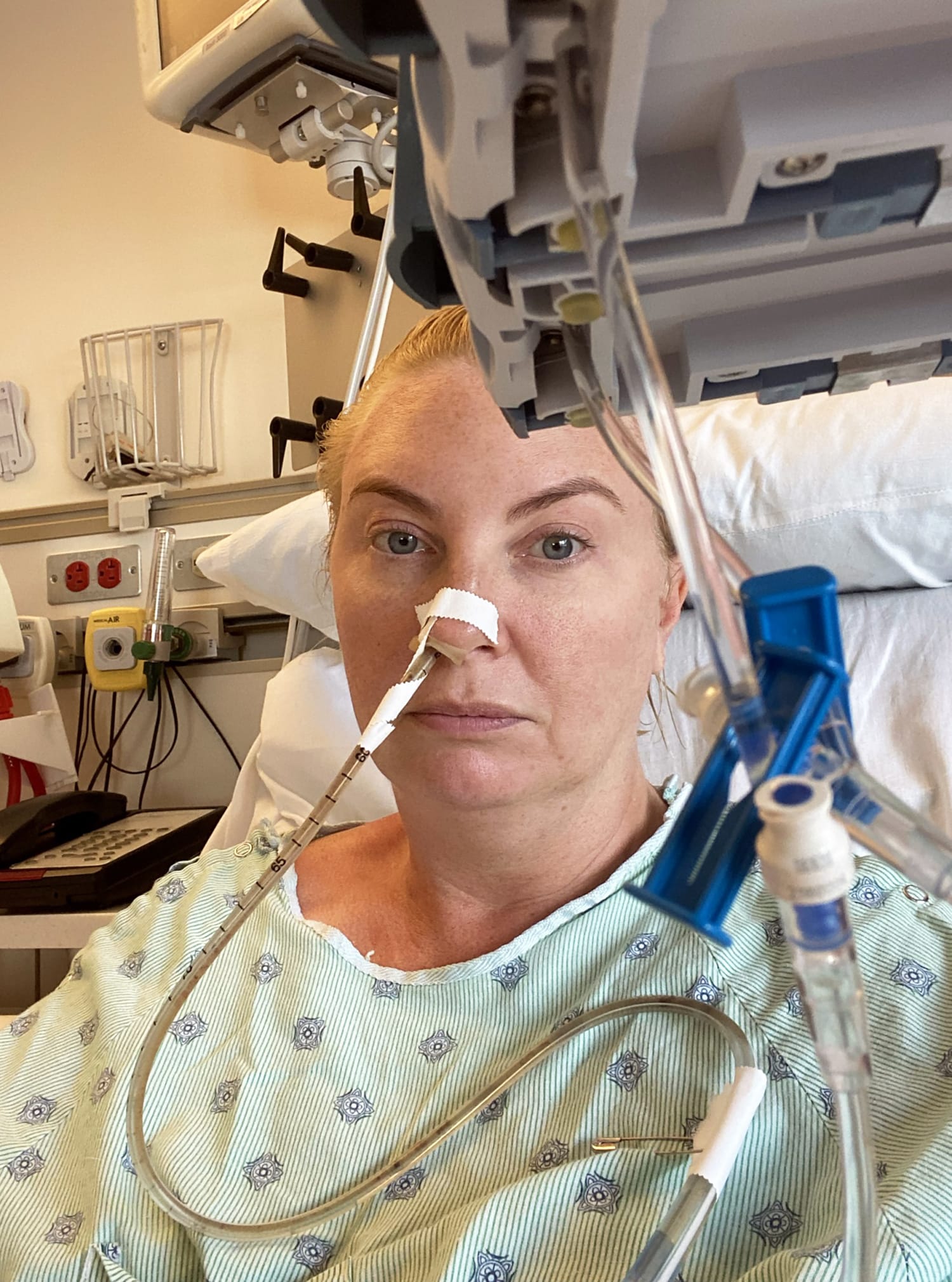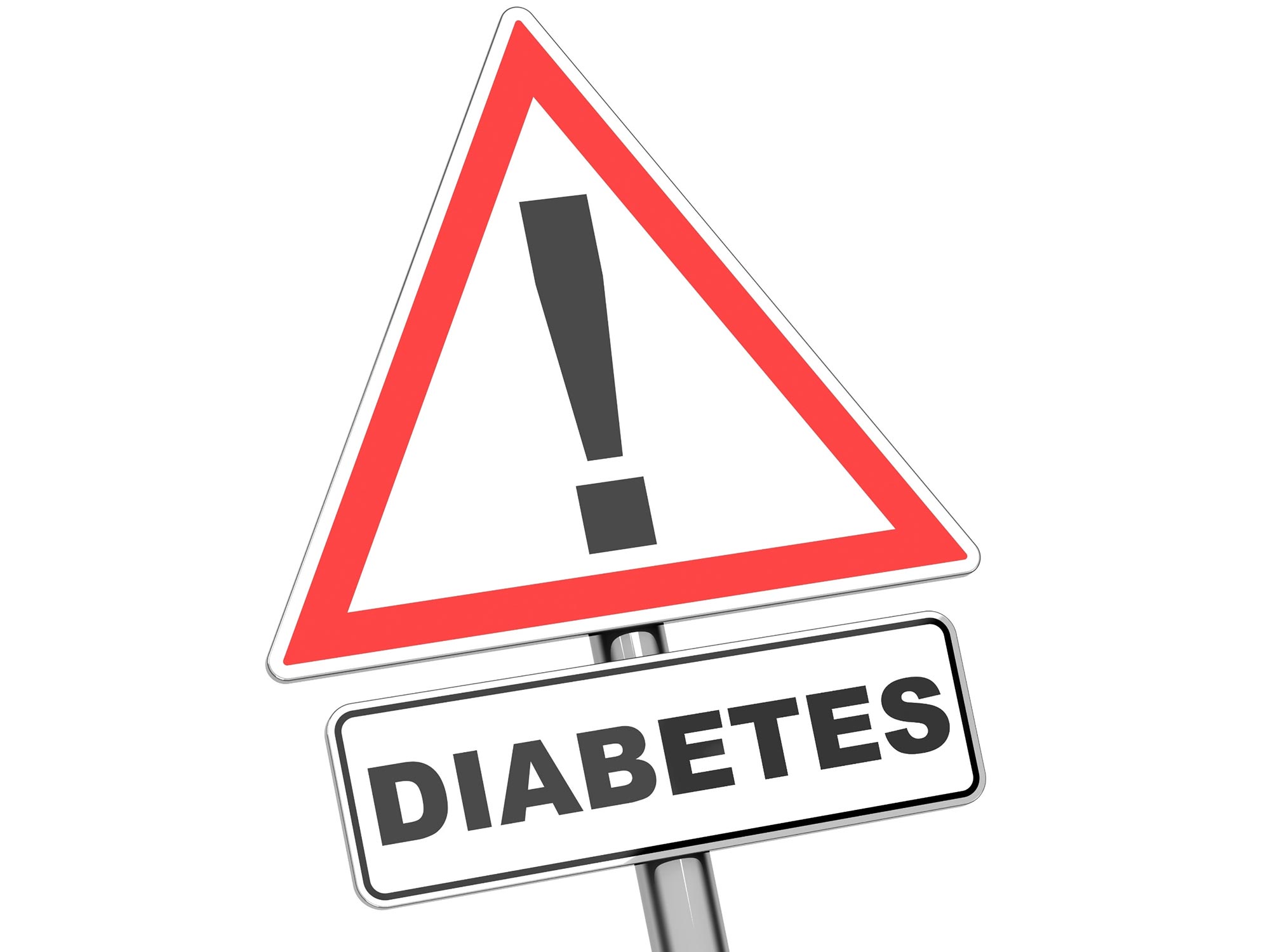Midlife Hearing Loss Linked to Faster Brain Aging, Dementia Risk: Study
A study of 805 Brazilian adults in their 50s found that hearing loss is linked to faster cognitive decline over eight years, impacting memory, language, and executive function. The research identifies reduced brain stimulation and social isolation as key mechanisms. Early hearing intervention is emphasized to potentially reduce dementia risk, especially in developing countries.

 Neuroscience News
Neuroscience News
Midlife Hearing Loss Linked to Faster Cognitive Decline, Brazilian Study Finds
A Brazilian study of 805 adults in their 50s found that hearing loss is associated with faster cognitive decline, affecting memory, language, and executive function. The study suggests reduced brain stimulation and social isolation as potential mechanisms, emphasizing the importance of early hearing intervention to reduce dementia risk, especially in low- and middle-income countries.

 Neuroscience News
Neuroscience News
Woman Misdiagnosed with Eating Disorder Before Achalasia Diagnosis and Treatment
Jessica Herrala's 14-year journey to an achalasia diagnosis reveals the difficulties of diagnosing rare conditions. Initially misdiagnosed with bulimia, Herrala suffered debilitating symptoms, including regurgitation and difficulty swallowing. After multiple doctors and misdiagnoses, a motility specialist identified her achalasia. Herrala underwent multiple surgeries, including an esophagectomy, and now advocates for patient self-advocacy in healthcare.

 TODAY.com
TODAY.com
Ultraprocessed Food Consumption Linked to Increased Risk of Early Parkinson's Symptoms
A new study published in Neurology indicates a correlation between the consumption of ultraprocessed foods and the early onset of Parkinson's disease symptoms. Individuals consuming more than 11 servings of UPFs daily were 2.5 times more likely to exhibit early signs of the disease. While the study identifies a link, it does not establish causation and calls for further research.

 The New York Times
The New York Times
 CNN
CNN
 Daily Mail
Daily Mail
 New York Post
New York Post
Broadband Contractor Cuts Flagler Beach Water Line, City Issues Boil Water Notice
A Metronet contractor in Flagler Beach, Florida, accidentally cut the city's main water line while laying broadband cables. This resulted in a water shut-off for mainland residents, prompting a boil water advisory. City crews completed repairs, but residents are urged to conserve water. The incident raises questions about utility mapping and preventative measures.

 FlaglerLive
FlaglerLive
Dopamine Receptors in Hippocampus Key to Anxiety, Mood Regulation: Study
Mount Sinai researchers discovered that D1 and D2 dopamine receptors in the ventral hippocampus regulate approach and avoidance behaviors in mice, impacting emotional responses under stress. Activating D2 receptors reduced fear, suggesting potential treatments for anxiety, depression, and addiction by targeting dopamine circuits. The study highlights dopamine's overlooked role in emotional regulation.

 Neuroscience News
Neuroscience News
H5N1 Bird Flu: Animal Cases Slow, Human Risk Remains Low, Vigilance Urged
Recent reports indicate a decline in H5N1 bird flu cases among animals and humans in the US. While the CDC and experts acknowledge this positive trend, they stress the importance of maintaining robust surveillance to detect potential resurgences or mutations. Concerns remain about the virus's ongoing spread and the possibility of increased transmissibility or severity.

 Phys.org
Phys.org
 MedPage Today
MedPage Today
 ABC News
ABC News
 Financial Times
Financial Times
Prenatal SSRI Exposure Linked to Altered Brain Circuits, Increased Anxiety Risk
A new study using both mice and human data suggests that exposure to SSRIs in the womb can lead to long-term changes in brain circuitry related to fear and anxiety. These changes, observed in both mice and adolescents, may increase the risk of developing depression and anxiety later in life. The research emphasizes the need for further investigation into the impact of SSRIs on fetal brain development.

 Neuroscience News
Neuroscience News
 Nature
Nature
 Psychiatry Advisor
Psychiatry Advisor
Prenatal SSRI Exposure Linked to Altered Brain Circuits and Increased Anxiety Risk
A new study using both mouse models and human data suggests that prenatal SSRI exposure can alter brain circuitry, specifically in fear circuits, leading to increased anxiety and depression risk during adolescence. The research highlights a serotonin-specific mechanism and emphasizes the need for further investigation before changing clinical guidelines for SSRI use in pregnancy.

 Neuroscience News
Neuroscience News
 Nature
Nature
 Psychiatry Advisor
Psychiatry Advisor
Wellness Budgets Unveiled: Americans Spend Thousands on Health and Wellbeing
This article explores the expenses associated with wellness by examining the monthly budgets of five individuals in the US and UK. It highlights the significant costs related to food, healthcare, fitness, cosmetic care, and other health-related items, demonstrating that maintaining good health can be financially demanding.

 The Guardian
The Guardian
Wellness Budgets Unveiled: Americans Spend Thousands on Health and Wellbeing
The article delves into the wellness spending of five individuals from the US and the UK, highlighting expenses across categories like food, healthcare, fitness, cosmetic care, and miscellaneous items. It reveals the considerable financial investment people make in their health and wellbeing, often influenced by factors like income, location, and health conditions.

 The Guardian
The Guardian
Massive Solar Filament Eruption Observed; Earth Dodges Direct Impact
On May 7, 2025, a substantial solar filament erupted from the sun, creating a visually striking event. While the eruption did produce a CME, its trajectory was directed away from Earth, preventing any direct impact. Forecasters continue monitoring solar activity for potential auroral displays at high latitudes.

 Space
Space
Low Blood Sugar May Worsen Diabetic Retinopathy, Blocking HIF Shows Promise
A study on diabetic mice reveals that low blood sugar can worsen diabetic retinopathy by increasing HIF levels, leading to blood-retinal barrier breakdown. An experimental drug, 32-134D, successfully blocked HIF and prevented retinal damage, offering potential therapeutic benefits for patients with diabetes experiencing fluctuating blood sugar levels and diabetic retinopathy.

 Neuroscience News
Neuroscience News
 New Atlas
New Atlas
 Medical Xpress
Medical Xpress
 Genetic Engineering and Biotechnology News
Genetic Engineering and Biotechnology News
Diabetes and Vision: Diet, Hypoglycemia, and Emerging Therapies for Retinopathy
This article consolidates information regarding diabetic retinopathy, addressing the impact of diet on eye health for diabetics, the unexpected risks of hypoglycemia, and novel treatment approaches. It summarizes the discussions at ARVO 2025 concerning unmet needs in retinopathy treatment and presents new research on hypoglycemia's role in retinal damage.

 Neuroscience News
Neuroscience News
 Medical Xpress
Medical Xpress
 Ophthalmology Times Europe
Ophthalmology Times Europe
 OnlyMyHealth
OnlyMyHealth
Moderate Exercise Boosts Neurocognition in Older Adults, Study Finds
A new study published in Age and Ageing found that even short bursts of moderate-to-vigorous physical activity can improve processing speed, working memory, and executive function in older adults. The study used data from the IGNITE trial and informed the ongoing FLAME study. Experts emphasize the importance of physical activity for brain health as people age.

 SciTechDaily
SciTechDaily
 MedicalNewsToday
MedicalNewsToday
 SciTechDaily
SciTechDaily
 AdventHealth
AdventHealth
Physical Activity Boosts Brain Health in Older Adults, Even in Small Increments
A recent study published in Age and Ageing indicates that even 5 minutes of moderate-to-vigorous physical activity can significantly improve cognitive functions like processing speed, working memory, and executive function in older adults. The research analyzed data from the IGNITE study and highlights the importance of incorporating physical activity into daily routines for brain health.

 SciTechDaily
SciTechDaily
 Medical News Today
Medical News Today
 AdventHealth
AdventHealth
 Physician's Weekly
Physician's Weekly
AI Identifies Chronic Pain Risk via Gut Microbiome with High Accuracy
A new study demonstrates that AI can accurately identify CRPS by analyzing gut microbiome patterns, even in patients whose symptoms have disappeared after amputation. The findings suggest that the microbiome may predispose certain individuals to develop CRPS, potentially leading to earlier and more accurate diagnosis of chronic pain conditions.

 Neuroscience News
Neuroscience News
South Carolina Woman Forced to Carry Dead Fetus Due to Abortion Law
A South Carolina woman, Elisabeth Weber, faced the agonizing ordeal of carrying a dead fetus for weeks due to the state's stringent abortion laws. This case highlights the challenges and emotional distress women endure under restrictive abortion policies, raising concerns about women's health, medical discretion, and the unintended consequences of such legislation in the US.

 Common Dreams
Common Dreams
 Times of India
Times of India
 People.com
People.com
 HerZindagi
HerZindagi
CGM Wearables Detect Early Diabetes Risk More Accurately Than Blood Tests: Study
A recent study by the University of Tokyo reveals that continuous glucose monitoring (CGM) devices, coupled with advanced algorithms, can detect early diabetes risk with greater precision compared to traditional blood tests. This non-invasive approach tracks glucose fluctuations in real-time, offering a more comprehensive view of glucose regulation and potentially enabling earlier preventative interventions.

 SciTechDaily
SciTechDaily
 The Spokesman-Review
The Spokesman-Review
 Diabetes in Control
Diabetes in Control
 Interesting Engineering
Interesting Engineering
DEHP Plastic Chemical Linked to Hundreds of Thousands of Heart Disease Deaths
A recent study published in The Lancet eBioMedicine reveals a significant correlation between exposure to DEHP, a chemical used to soften plastics, and cardiovascular deaths. The study estimates that nearly 350,000 deaths in 2018 were attributable to DEHP exposure, with disproportionately high mortality rates observed in the Middle East and South Asia due to regional disparities.

 SciTechDaily
SciTechDaily
 Honolulu Civil Beat
Honolulu Civil Beat
 KTBS
KTBS
 Physician's Weekly
Physician's Weekly
